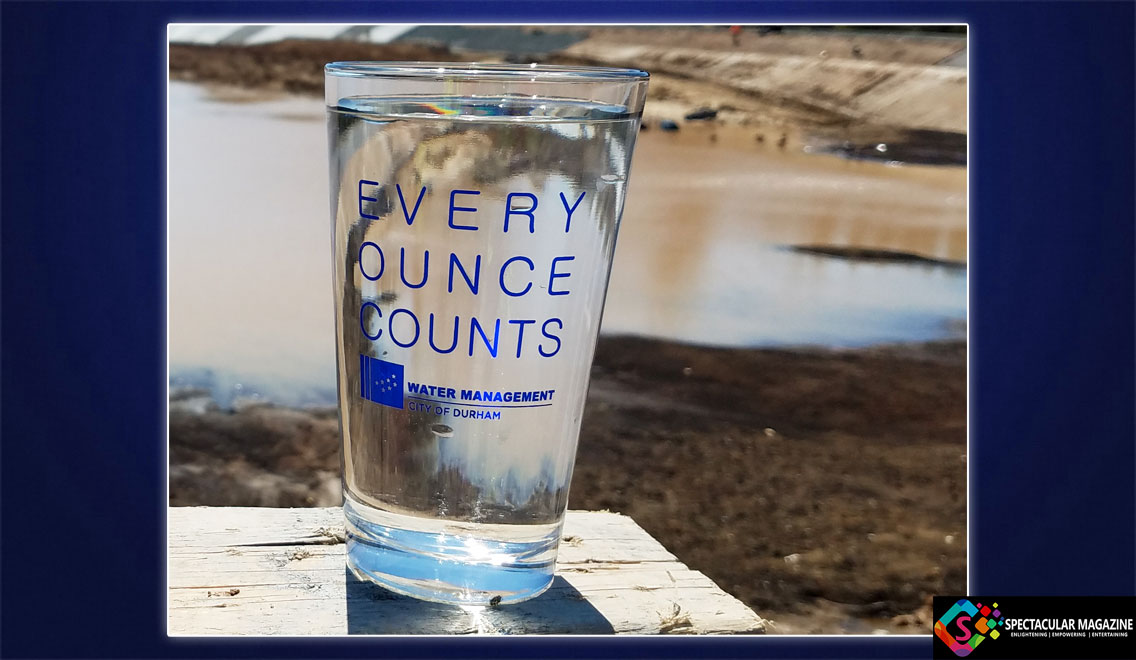City of Durham to Perform Temporary Water Disinfection Changeover
Durham, NC – Beginning Friday, March 1, Durham water customers may notice a slight change in the taste and aroma of their tap water. The City’s Department of Water Management is performing its water treatment disinfection changeover process, which takes about six weeks to complete. This process is required by federal and state regulations, and is typically performed each year during the spring. Last year, Water Management deferred its process due to significant construction improvements at both its water treatment plants. This changeover does not affect the safety or quality of Durham’s drinking water.
The process involves temporarily stopping the use of ammonia in the water treatment process. When used together, ammonia and chlorine form a chemical called chloramine, which safely and effectively disinfects water while also reducing the formation of disinfection byproducts in the water distribution system. Durham has used chloramination as its primary disinfection process since 2002. Federal and state regulators require water providers that rely on chloramination to temporarily change this method of disinfection on a periodic basis. The temporary switch to chlorine-only disinfection serves as a precautionary measure to ensure the entire water distribution system is appropriately maintained. City water treatment staff will cease ammonia addition on March 1, and will resume adding it on April 15.
Another part of the process is to conduct system-wide fire hydrant flushing to help disperse chlorine throughout the system. On Wednesday, March 6, the department’s Water & Sewer Maintenance Division (WSM) will begin this process, which will continue for approximately five weeks. Crews will work throughout Durham flushing hydrants between 7 a.m. and 7 p.m. Monday through Friday during this timeframe.
During this process, residents may notice slight discoloration in their water while WSM crews are at work in their neighborhoods. Dialysis patients and aquarium/pond owners should continue to take special precautions to remove traces of ammonia and chlorine from the water prior to using it. Customers should also check their water before washing white clothing. If water discoloration occurs, run the water for a few minutes until it becomes clear. If discoloration persists, contact WSM at (919) 560-4344. Customers can also store drinking water in the refrigerator for use later, as the chlorine taste and odor dissipates after sitting for a few hours.
Also during this time, several of Durham’s interconnected neighboring utilities in the Triangle – including the Towns of Cary and Hillsborough, the City of Raleigh, and Orange Water and Sewer Authority – will conduct their own disinfection changeovers and water distribution system flushing. This is a common and deliberate practice, and is helpful if one provider needs to share or receive supplemental water with a neighboring community.
For more information about chloramination and the water disinfection process, contact Water Management at (919) 560-4381 or visit http://durhamnc.gov/1196/.
About Water Management
The Department of Water Management provides award-winning drinking water, and is responsible for the operation and maintenance of Durham’s water supply, treatment and reclamation facilities, collection and distribution systems, and customer billing services. Department organization includes a variety of support divisions and programs to maintain the existing infrastructure that delivers these essential services. Water Management strives to be a responsible steward of the City’s physical assets. For more information, visit http://durhamnc.gov/944/ and follow @DurhamWater on Twitterand Facebook.


